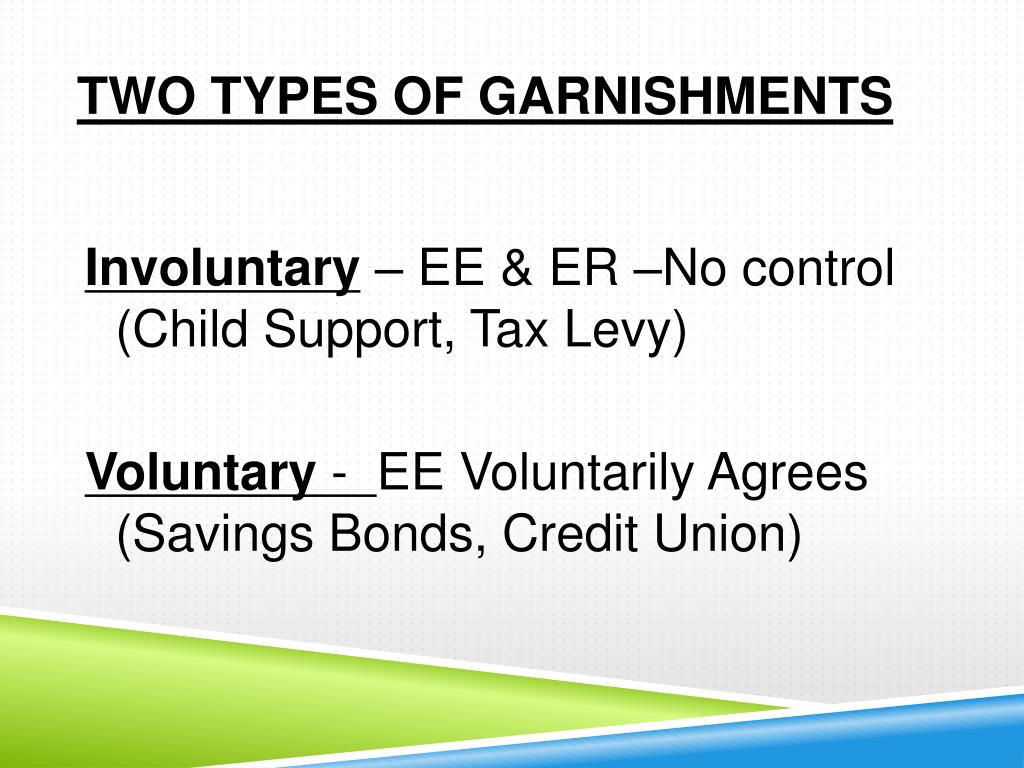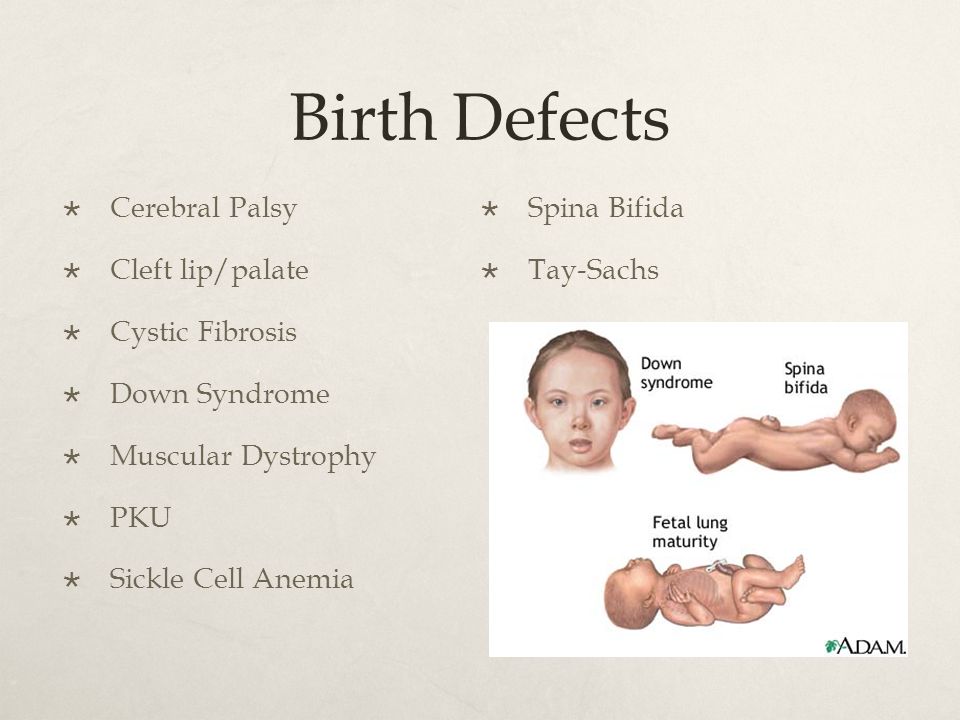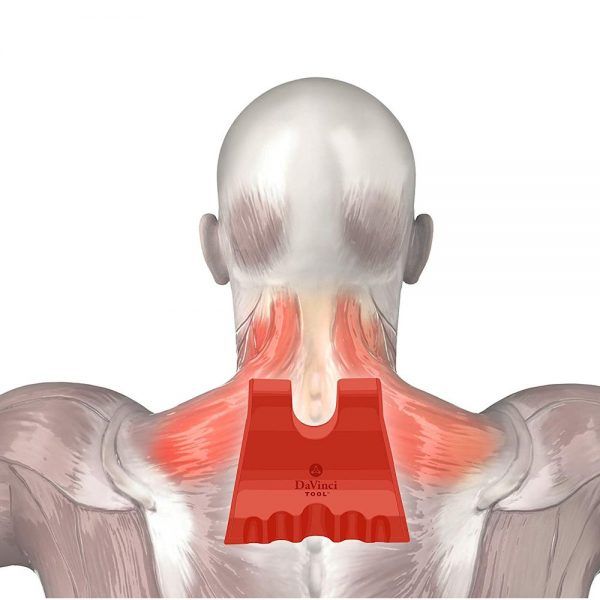How to stop child support garnishments
How to Stop Child Support Withholding
Family, Divorce & Children
This article contains information, instructions, and forms for having child support withholding stopped.
Composed by TexasLawHelp • Last Updated on June 6, 2022
Page Sections
When is someone eligible to have child support withholding stopped?
Someone is eligible to have child support withholding stopped when:
- The child support obligation has ended, or
- The parties reach an agreement for child support to stop and the parties have filed a modification case.
Note: Get a copy of your court order to learn when the child support obligation ends in your case. You can also read some common reasons child support may have ended listed in the Order to Employer to Terminate Withholding for Support form.
What do I need to do to stop child support withholding?
Step 1: Fill out these forms.
Note: These forms should only be used if your child support obligation has ended. If your child support obligation has not ended, you may need to file a modification case. For more information about filing a modification case, read this short article: Changing a Custody, Visitation or Child Support Order. You may also use the instructions and forms available in the toolkit: I need to change a custody, visitation or child support order.
If you want to stop child support from being withheld from your paycheck by an employer because the child support obligation has ended you can:
Use these forms if you want to file the court papers yourself and then give the other party legal notice of the case:
- Petition to Terminate Withholding for Child Support: Fill this out completely in blue or black ink.
- Waiver of Service OR Answer to Petition to Terminate Withholding for Child Support
- Give the other party (the respondent who receives the support) both of these forms and ask the respondent to sign either form and give it back to you.

- Note: If the other party will not fill out and sign the Waiver of Service or Answer to Petition to Terminate Withholding for Child Support form, you must have the respondent served by a constable, sheriff or private process server. Use these instructions: How to Serve the Initial Court Papers
- The Waiver of Service form must be signed in front of a notary. If the respondent plans to sign the Waiver of Service form, tell the respondent to sign it in front of a notary at least one day after you filed the Petition. Otherwise, the respondent will have to redo it.
- The Answer to Petition to Terminate Withholding for Child Support form does not have to be signed in front of a notary.
- Give the other party (the respondent who receives the support) both of these forms and ask the respondent to sign either form and give it back to you.
- Order to Employer to Terminate Withholding for Support
- Fill this out completely in blue or black ink. Ask the respondent to sign it. You should also sign it.
- The Order to Employer to Terminate Withholding for Support form must be completely filled out when the respondent signs it.
 You CANNOT make changes to the order form after it has been signed by the respondent, unless the respondent initials each change.
You CANNOT make changes to the order form after it has been signed by the respondent, unless the respondent initials each change.
Online Guided Forms - Interactive
Petition to Terminate Child Support Withholding - Guided Form
Respondent's Answer or Waiver to the Petition to Terminate Child Support Withholding - Guided Form
Step 2: Turn in your petition.
Turn in your completed Petition to Terminate Withholding for Child Support form at the district clerk’s office in the county where your current order was made. Get a copy for both you and the other party. The clerk will “file-stamp” your forms with the date and time and return the copies to you.
Step 3: Send a file-stamped copy of the Petition to the other party.
Send a file-stamped copy of the Petition to Terminate Withholding for Child Support to the other party. Send it by certified mail, return receipt requested.
Note: If the other party will not fill out and sign the Waiver of Service or Answer to Petition to Terminate Withholding for Child Support form, you must have the respondent served by a constable, sheriff or private process server. Use these instructions: How to Serve the Initial Court Papers.
Step 4: Schedule a hearing.
If the other party signed the Order or Waiver of Service, call the clerk’s office to learn when and where the court hears uncontested cases.
If the respondent was served and did not file an answer, determine if your case can be finished by default:
- A Return of Service form (stating when and where the respondent was served) has been on file with the clerk’s office for at least 10 days (not counting the day it was filed or the day you go to court).
- The 20-day waiting period for the respondent to file an answer has passed.

- If the respondent filed an answer and will not sign your completed Order to Terminate Child Support Withholding, your case is contested. To finish a contested case, you must set a contested final hearing. Read this article to learn more: How to Set a Contested Final Hearing. It’s always best to have a lawyer if your case is contested.
Read the article Tips for the Courtroom for more information about going to court.
Step 5: Go to the hearing
Be ready to explain to the judge why you are eligible to have the child support withholding stopped
Bring the following with you to court:
- Proof that you sent the Petition to Terminate Withholding for Child Support to the other party.
- The Order to Employer to Terminate Withholding for Support for the judge to sign.
If the judge agrees to stop the withholding of child support, the judge will sign that order.
After the judge signs the order, take the signed order back to the clerk’s office. Ask the clerk to send a certified copy to the employer that is withholding support from your paycheck. Get a copy of the signed order for your records.
Does it cost anything to file a Petition to Terminate Withholding for Child Support?
Yes. Call the district clerk’s office in the county where the current order was made to learn the fee. If you cannot afford the fee, learn about Court Fees & Fee Waivers.
If you cannot afford the court fees for your case, you can ask the judge to waive the fees by filing a Statement of Inability to Afford Payment of Court Costs.
Will the court automatically approve my Petition?
No. The Court will not approve your Petition if:
- You do not meet the requirements, or
- You owe arrears for child support.
Should I talk with a lawyer to find out if I can ask for my child support withholding to stop?
Yes! If possible, talk with a lawyer. You can hire a lawyer just to:
You can hire a lawyer just to:
- give you advice and review your forms, or
- represent you at your hearing.
You may also be able to talk with a lawyer for free at a legal clinic.
If you need help finding a lawyer, you can:
- Contact your local lawyer referral service, or
- Use our Legal Help Directory tool, or
- Check our Events Calendar.
Related Guides
I need to change a custody, visitation, or support order (Modification).
Child Custody & Visitation
This guide tells you how to modify an existing custody, visitation, child support, and medical/dental support order.
Explore Guide
I need to respond to a modification case.

Child Custody & Visitation
This guide explains your options if your child’s other parent (or someone else) has filed a modification case to change an existing custody, visita...
Explore Guide
Related Articles
-
Child Support
This article about child support was written by Texas RioGrande Legal Aid.
Read More
-
Changing a Custody, Visitation or Child Support Order
This article answers frequently asked questions about changing an existing custody, visitation, child support, medical support, or dental support o...
Read More
Related Forms
Order to Employer to Terminate Withholding for Support
FM-IW-104
Use to tell employer to stop withholding child support. Must be signed by judge.
Must be signed by judge.
Download Form
Statement of Inability to Afford Payment of Court Costs or an Appeal Bond
CB-CFFW-100
Use to ask a court to waive court costs, appeal bonds, or cash deposits; based on your inability to pay.
Download Form
Declaración de incapacidad para cumplir con los pagos de las costas judiciales o una fianza de apelación
CB-CFFW-101
Se utiliza para pedirle a un tribunal que renuncie a las costas judiciales, apelar fianzas o depósitos en efectivo; basado en su incapacidad para p...
Download Form
Record of Support Order with Application (1 TAC 55.
 121)
121) 1828a
This form is used by larger Texas counties to provide the record of support order data needed by the state case registry.
Download Form
Record of Support Order
Form 1828A (ROS/App)
This completed form must be submitted to the county’s clerk of the court to set up the child support account.
Download Form
Back to top
Quick escape
Live Chat Available
Open chat
Live Chat Offline
Live Chat Unavailable
Defense Finance and Accounting Service > Garnishment > childsupportalimony > stoppayment
How to Stop Child Support or Alimony PaymentsThe process for stopping child support and alimony payments depends on the method used to start the payment.
If the payment is made because an income withholding order was issued by a child support enforcement agency (CSEA) then in most cases, you will have to contact that particular agency to have them send us a termination order. The reason for this is that most withholding orders that are issued by CSEAs direct us to withhold “until further order.”
It is unusual that they would have given us a firm termination date. Therefore, until we receive another order telling us to stop payments, we are legally mandated to continue issuing payments.
If you are a reservist who was called to active duty and has returned to your non-DoD civilian job and your civilian job is collecting child support, please contact your local support enforcement agency. Ask them to send DFAS notice to terminate the order that was sent to affect your reserve pay.
We cannot stop issuing support payments from your reserve pay unless we are served with a termination. Pay statements from your non-DoD civilian job are not sufficient to stop payments.
Pay statements from your non-DoD civilian job are not sufficient to stop payments.
In these cases, the court would have issued the garnishment order at the request of the custodial parent. We would usually be making garnishment payments directly to a custodial parent. If the payments are going to a court or SDU, they are serving only as a "pass through" for the payments, and do not monitor the case or initiate any actions.
When the garnishment order contains no termination instructions, we can terminate current support deductions at the member/employee's request if we can determine that the current support obligation has ended, unless the garnishment order directs us to withhold until further order of the court. The member/employee should submit the underlying support order to assist us in this determination, along with any other pertinent documentation such as proof of age and/or graduation.
In addition, if the custodial parent is receiving the payments directly, a request in writing from them is also acceptable.
If we are issuing payments from a retired military member’s retired pay based on an application made under the authority of the Uniformed Services Former Spouse Protection Act, (USFSPA), 10 U.S.C. § 1408, then a review of the language in the divorce decree that sets forth the child support obligation may be determinative.
If the decree states when payments are supposed to stop, then that would be controlling. If it doesn’t state when child support should stop, then the member will need to go back to court to obtain an order stopping the child support. There is no federal statute that controls this, so it is up to the state court that issued the order to instruct us to terminate the payments.
If we are issuing payments under the USFSPA and the divorce decree does state that payments will stop upon some condition (usually turning 18 and graduated from high school), then the member will need to provide us proof of that condition being satisfied. Acceptable proof of graduation is a program from the commencement that lists the child’s name, or a letter from the school stating the child has graduated or otherwise left school.
Acceptable proof of graduation is a program from the commencement that lists the child’s name, or a letter from the school stating the child has graduated or otherwise left school.
A problem arises when we are issuing payments under the USFSPA and the divorce decree orders support payments for more than one child. If the divorce decree does not state how much to reduce the payment when the first or subsequent child is no longer eligible to receive payment, then the parties will have to obtain a modified court order or CSEA order instructing us on this issue. When payments stop for one child, payments for other children are not automatically pro-rated. Unless the decree clearly states what is to happen, we require the parties to go back to court or a CSEA to get the order modified.
When a Military Member RetiresAlthough we are notified when a military member retires, it can take 30 to 60 days for DFAS Retired and Annuitant Pay to create the retired pay account. We can’t start payments until the retired pay account is established, so there may be a delay in payment. If you are a member about to retire and have a support obligation that needs to continue, please call the Customer Care Center at 888-DFAS-411 (332-7411).
We can’t start payments until the retired pay account is established, so there may be a delay in payment. If you are a member about to retire and have a support obligation that needs to continue, please call the Customer Care Center at 888-DFAS-411 (332-7411).
If you are the person receiving the funds and you know the member is about to retire, please contact us. As always, please include the member's Social Security Number on all correspondence.
Page updated Jan. 12, 2018
Art. 120 RF IC. Termination of maintenance obligations
1. Alimony obligations established by an agreement on the payment of alimony terminate upon the death of one of the parties, the expiration of this agreement, or on the grounds provided for by this agreement.
2. The payment of alimony levied by the court shall be terminated:
when the child reaches the age of majority or if the minor children acquire full legal capacity before they reach the age of majority;
upon adoption (adoption) of a child for whose maintenance alimony was collected;
upon recognition by the court of restoration of working capacity or termination of the need for assistance of the alimony recipient;
upon entry of a disabled ex-spouse in need of assistance - the recipient of alimony into a new marriage;
death of a person receiving alimony or a person obliged to pay alimony.
See all related documents >>>
< Article 119. Changing the amount of alimony established by the court and exemption from paying alimony
Article 121. Protection of the rights and interests of children left without parental care >
alimony, and alimony provided for by a court decision.
In turn, the grounds for the termination of maintenance obligations, provided for by the agreement on the payment of alimony, can be divided into unconditional, which are directly provided for in paragraph 1 of the commented article, and additional, which are mentioned in the agreement on the payment of alimony.
The absolute grounds are the death of one of the parties and the expiration of this agreement. For some unknown reason, this list does not contain such a basis as declaring a citizen dead, which, in its consequences, is equated to death.
Among the additional grounds for the termination of maintenance obligations, provided for by the agreement on the payment of alimony, usually also include a change in the financial situation of the parties, the restoration of the alimony recipient's ability to work (these circumstances must be confirmed in court if there is a dispute). The maintenance obligation may also be terminated as a result of graduation from an educational institution, adoption, entry into a new marriage of a spouse in need of alimony.
The maintenance obligation may also be terminated as a result of graduation from an educational institution, adoption, entry into a new marriage of a spouse in need of alimony.
2. As for the grounds for terminating the payment of alimony collected by the courts, their exhaustive list is given in paragraph 2 of the commented article.
The termination of the maintenance obligation as a result of the acquisition by the minor of full civil capacity, in addition to reaching the age of 18, also occurs in the case of the emancipation of the minor on the basis of Art. 27 of the Civil Code of the Russian Federation or when a minor enters into marriage as a result of a reduction in his marriageable age (clause 2, article 21 of the Civil Code of the Russian Federation).
Termination of the right to alimony by adopted children is due to the fact that, in accordance with paragraph 2 of Art. 137 (see commentary to it), adopted children lose their personal non-property and property rights and are released from obligations towards their parents (their relatives).
Disabled persons include women who have reached 55 and men 60 years old (regardless of the appointment of a pension to them in appropriate cases at an earlier age), disabled people of groups I, II and III, including disabled people from childhood, people who have not reached the age 16 years (Article 63 of the Labor Code of the Russian Federation), students under 18, and full-time students - until graduation, but no longer than until they reach 23 years of age. Restoration of working capacity is possible upon removal of disability, reaching the age of 18, termination of full-time education.
There may be situations when a disabled person will no longer have the second reason - neediness (for example, a disabled person will receive a large inheritance). In such cases, the obligation to pay child support is terminated.
Termination of the maintenance obligation in respect of a disabled former spouse who is in need of assistance - the recipient of alimony upon his entry into a new marriage is due to the fact that maintenance obligations in such cases are transferred to the other spouse.
In paragraph 22 of the Resolution of the Plenum of the Supreme Court of the Russian Federation of October 25, 1996 N 9 "On the application by the courts of the Family Code of the Russian Federation when considering cases of establishing paternity and collecting alimony" it is noted that the placement of a spouse receiving alimony from the other spouse in a home for the disabled on state support or transferring him to the provision (care) of a public or other organizations or individuals (for example, in the case of the conclusion of a contract for the sale of a house (apartment) with the condition of life maintenance), may be the basis for the release of the alimony payer from their payment, if there are no exceptional circumstances that make additional expenses necessary (special care, treatment, nutrition, etc.), since, by virtue of paragraph 2 of Art. 120 of the RF IC, the spouse's right to receive maintenance is lost if the conditions that are, according to Art. 89RF IC, the basis for obtaining maintenance.
Ask a lawyer:
+7 (499) 703-46-71 - for residents of Moscow and the Moscow region
+7 (812) 309-95-68 - for residents of St. Petersburg and the Leningrad region
When does child support stop? - Lawyer in Samara and Moscow
If alimony is paid under an agreement
If alimony is paid on the basis of a notarized agreement of the parties, then their payment stops:0004
- in case of death of one of the parties to the agreement;
- after the expiration of the agreement;
- on the grounds provided for by the agreement (clause 1, article 120 of the RF IC).
When the above circumstances occur, you do not need to contact a notary. The alimony payer has the right to simply stop paying alimony.
If, on the basis of an agreement, alimony is collected as part of enforcement proceedings or withheld from earnings by the employer, then it makes sense to notify the bailiff or employer of the occurrence of these circumstances.
If alimony is collected by court order
Payment of alimony collected by court order is terminated:
- when the child reaches the age of majority or if minor children acquire full legal capacity before they reach the age of majority;
- upon adoption (adoption) of a child for whose maintenance alimony was collected;
- when the court recognizes the restoration of working capacity or the termination of the need for assistance of the alimony recipient;
- upon entry of a disabled former spouse in need of assistance - the recipient of alimony into a new marriage;
- with the death of a person receiving alimony, or a person obliged to pay alimony (clause 2, article 120 of the RF IC).
When do I need to go to court?
To stop paying alimony in case of restoration of working capacity or termination of the need for assistance of the alimony recipient (his financial or marital status has changed), you will need to apply to the court (paragraph 1 of article 119RF SC). To do this, the alimony payer must file a claim with the Magistrate's Court for exemption from further payment of alimony. At the same time, in court, the alimony payer will most likely need to prove that the alimony recipient's ability to work has been restored, or that he no longer needs to receive alimony.
To do this, the alimony payer must file a claim with the Magistrate's Court for exemption from further payment of alimony. At the same time, in court, the alimony payer will most likely need to prove that the alimony recipient's ability to work has been restored, or that he no longer needs to receive alimony.
You may also need to go to court if you adopt a child. Note that, as a general rule, alimony is not collected from the date the court decision on adoption comes into force (clause 2, article 120 of the RF IC; clause 2, article 274 of the Code of Civil Procedure of the Russian Federation; clause 17 of the Decree of the Plenum of the Supreme Court of the Russian Federation dated 04.20.2006 N eight). However, it happens that even after adoption, the alimony payer retains obligations in relation to the child, including the payment of alimony. If such obligations are not reserved for the payer, then the court will release him from paying alimony.
When can I not go to court?
Upon termination of the payment of alimony collected in court, the rules for termination of enforcement proceedings are applied. As a general rule, the bailiff issues a ruling on the termination of enforcement proceedings (Article 43 of the Law of 02.10.2007 N 229-FZ). The executive document with a corresponding mark is sent to the court that issued the decision on the recovery of alimony. All enforcement measures taken by the bailiff-executor are canceled.
As a general rule, the bailiff issues a ruling on the termination of enforcement proceedings (Article 43 of the Law of 02.10.2007 N 229-FZ). The executive document with a corresponding mark is sent to the court that issued the decision on the recovery of alimony. All enforcement measures taken by the bailiff-executor are canceled.
In order for the bailiff to stop the enforcement proceedings, inform him:
- about the child reaching the age of majority or acquiring legal capacity;
- entry of the former spouse into a new marriage;
- death of a person receiving (or paying) alimony.
The bailiff will inform you what documents may be needed to terminate enforcement proceedings.
If alimony is collected at the place of work, then you need to inform the accounting department about the occurrence of the listed circumstances. The accountant will let you know if they can stop withholding child support and if any additional paperwork is required to do so.
Remember, at any stage of a family dispute, the Legal Center for Family Affairs of Attorney Anatoly Antonov is ready to provide you with legal support. Call us by phone in Samara + 7 (846) 212-99-71 right now and sign up for a consultation at a convenient time for you.
Legal Center for Family Affairs of Attorney Anatoly Antonov provides the following legal services regarding the payment of alimony for minor children, as well as other family members:
- legal advice;
- drawing up an agreement on the payment of alimony;
- drawing up a statement of claim for the issuance of a court order;
- preparation of a statement of claim for the recovery of alimony and attachments to it, as well as filing it with the court;
- preparation of objections regarding claims for the recovery of alimony, for a reduction in the amount of alimony;
- familiarization with the materials of the case for the recovery of alimony, for reducing the amount of alimony;
- participation in court hearings (possibly without the presence of the principal) for the recovery of alimony;
- obtaining a court decision on the recovery of alimony;
- appeal against the decision of the court in a higher instance.













